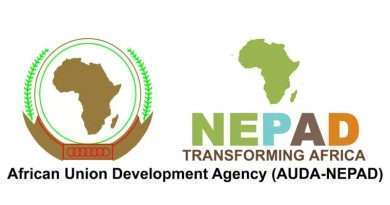Job opening: Roving Health and Nutrition Coordinator Nigeria at Save The Children
Save the Children is dedicated to investing in the well-being of children every single day, whether it be during times of crisis or for the betterment of our future. Our organization is committed to providing children in the United States and across the globe with a healthy start, access to quality education, and protection from any harm they may face. By making a difference in the lives of children today, we are able to shape a brighter future for both them and ourselves. We kindly urge you to consider supporting our mission by making a monthly contribution. Save the Children is actively working to strengthen healthcare systems and provide support for maternal and child health in four northern states of Nigeria.
There is still much work to be done in order for Nigeria to fulfill its commitments to the Millennium Development Goals 4 and 5, which aim to reduce child mortality rates and improve maternal health, before the year 2015. Here are some important facts about Nigeria: it is home to over 173 million people, the average girl’s education typically ends at the age of 9, 123 out of every 1000 children do not live to see their 5th birthday, and parents earn an average of just $4 per day. Save the Children has been actively involved in Nigeria since 2001, working tirelessly to enhance healthcare systems in the northern region. Our efforts include providing essential maternal, newborn, and child health services, as well as revitalizing routine immunization programs. Roving Health and Nutrition Coordinator Nigeria at Save The Children
Job Type: Full Time
Qualification: BA/BSc/HND
Experience: 3 years
Location: Abuja
Job Field: NGO/Non-Profit
Scopeof work : Roving Health and Nutrition Coordinator Nigeria at Save The Children
The role of the Emergency Health and Nutrition coordinator within Save the Children Nigeria’s Roving Rapid Response Team involves overseeing the coordination and supervision of health and nutrition preparedness and emergency response efforts in Nigeria. The coordinator is responsible for ensuring the successful implementation, monitoring, and evaluation of approved plans and budgets to help achieve project results and strategic goals. This includes addressing potential causes of disease outbreaks and providing life-saving responses during emergencies. The coordinator’s management of emergency responses is crucial for ensuring high-quality implementation in alignment with Save the Children’s policies, practices, Vision, Mission, and values.
Key Responsibilities: Roving Health and Nutrition Coordinator Nigeria at Save The Children
This role is centered around emergency and humanitarian programming across various projects. The individual in this position will be required to contribute to Save the Children’s dual mandate and provide support as necessary.
Program Oversight:
– Oversee the coordination of emergency health and nutrition response in Nigeria.
– Work closely with Sector leads, Health and Nutrition Technical Advisors, and the Early Warning Systems Manager to monitor the SC-EWS and other national platforms for risk assessment, timely identification of triggers, and deployment of early interventions.
– Develop predetermined strategies to lessen the impact of anticipated hazards and/or escalating risk levels.
– Assist in creating a context-specific Health and Nutrition Preparedness plan.
– Offer assistance to ensure the smooth and timely commencement and execution of project activities as outlined in the approved project plans and budget.
– Coordinate and engage with the Ministry of Health, WHO, and other relevant partners to mobilize and align resources, as well as collectively monitor trends for prompt responses.
– Support the management and positioning of emergency health and nutrition supplies and facilitate the immediate distribution of relief kits during emergencies.
– Lead the high-quality implementation of projects, including the development of financial and operational plans in accordance with anticipatory measures.
– Initiate and support Risk Communication and Community Engagement, disease management, surveillance mechanisms, and the establishment of referral systems to designated treatment/isolation centers.
– Establish and facilitate connections, coordination, and integration with similar partners or related programs/projects for cohesive responses.
– Act as the main point of contact for regular communication and engagement with internal and external stakeholders of the projects.
– Conduct routine field visits and review meetings, overseeing all Save the Children resources (equipment, supplies, human resources) dedicated to emergency health and nutrition responses.
Budget Management and Donor Compliance:
1. Develop a monthly work plan based on the approved Detailed Implementation Plan (DIPs).
2. Collaborate with the Rapid Response Manager and Deputy Director of Programme Operations to manage budgets effectively. This includes aligning budgets with work plans, conducting monthly reviews of budget versus actual expenditure reports, and identifying any gaps in financial management that need to be addressed.
3. Ensure that the project has clear plans in place for procurement, work plans, recruitment, Budget Variance Analysis (BVA), and phased budgets.
4. Ensure that project budgets and other resources are utilized effectively and efficiently for their intended purpose. This includes assigning resources to partners and closely monitoring budget utilization and project expenditure.
5. Collaborate with internal stakeholders to provide training and capacity building on compliance with donor and organizational regulations for staff and partners.
6. Monitor and track burn rates, reporting, and financial compliance issues related to awards. Proactively identify and address any problems that may arise.
Representation and Communication:
1. Represent SCI nutrition and actively participate in internal coordination efforts. Share up-to-date information within the sector to ensure effective collaboration.
2. Document findings and recommendations from field visits for follow-up actions. Share this information as appropriate.
3. Play an active role in the development and submission of program reports, ensuring that they are complete, accurate, and submitted in a timely manner.
4. Document lessons learned in specific technical areas to inform future projects and improve program implementation.
Policy Analysis, Policy Engagement, and Advocacy for Policy Change:
Contribute to the advancement of knowledge and research in the field of health and nutrition, which will support the objectives of sector advocacy. Additionally, take the lead in conducting implementation research that is essential for evidence-based advocacy.
Represent the organization in various external technical task forces, working groups, seminars, and meetings that are relevant to the sector. These engagements should be approved by the sector head and utilized as opportunities to negotiate strategic positions, project priorities, and advocacy stances.
Develop strong relationships with other non-governmental organizations (NGOs), development agencies, and United Nations (UN) agencies that are working in the same sector. Whenever possible, establish alliances with these entities to exert influence on key stakeholders and achieve advocacy objectives.
Ensure that the voices and perspectives of children are at the forefront of advocacy efforts and policy change objectives. Their input should guide the direction of activities and initiatives related to advocacy.
Compile, analyze, and interpret data related to nutrition response. Provide regular updates to government bodies and NGO coordination bodies as requested. Utilize this information to make informed decisions regarding the allocation of resources for further action.
Participate in the identification, coordination, and implementation of operational research studies. These studies aim to pilot and scale-up effective interventions in coordination with other stakeholders.
Programme Quality and Effectiveness:
Ensure that project officers adhere to both internal and donor technical standards and requirements. This includes overseeing the quality of implementation, reviewing and editing reports, and ensuring they meet acceptable technical and presentational standards.
Participate in project monitoring and review meetings conducted in the field.
Collaborate with Programme Operations staff to identify the technical support needs of projects and staff. Together, agree on specific and time-bound support requirements in relevant technical areas.
Provide technical training to project staff to enhance their skills and capabilities in implementing the project effectively.
Assist project staff in utilizing emergency health and nutrition tools and guidelines, as well as cross-cutting approaches, to ensure the quality of their work. These may include child participation and child rights programming, among others.
Assist project staff in the use of emergency health and nutrition and cross-cutting tools and guidelines to ensure the quality of work. These include, among others, child participation, child right programming and mainstreaming of gender, diversity, and HIV/AIDS.
Prepare work plans, in consultation with Field manager and Nutrition technical team and ensure that implementation is up to date.
Undertake regular field visits to project sites to ensure technical quality and timeliness of ongoing work.
Documentation and Reporting:
Provide accurate, complete, and up-to-date information required for effective strategic and tactical planning in the Nigerian Response.
Work with the health/nutrition and MEAL team to ensure quality data is produced, collated, compiled, and shared.
Prepare regular/mandated program/project reports for management to keep them informed of program progress.
Build the capacities of the ERT team to produce quality reports.
Program Finance, Logistics and Administration:
Assist in staff recruitment and training, conduct performance monitoring in collaboration with HR, and ensure that standards and protocols are adhered to.
Timely submit the procurement requests for all projects
Review and manage program budgets and ensure that there is regular alignment of the budget regarding expenditures.
Coordinate very closely with logistics in order to ensure that there is no break in nutrition program supplies.
Organize and follow-up on all other procurements needed for the projects.
Accountability:
Takes personal responsibility for decision-making, efficiently manages resources, and exemplifies the values of Save the Children.
Holds the team and partners accountable for fulfilling their responsibilities, empowering them to deliver in the most effective way possible, providing necessary support for growth, and implementing appropriate consequences for unachieved results.
Ambition:
Sets ambitious and demanding goals for themselves (and their team), assumes ownership of personal development, and inspires others to do the same.
Shares their personal vision for Save the Children widely, engaging and motivating others.
Forward-thinking and strategic in their approach.
Collaboration:
Establishes and nurtures effective relationships with their team, colleagues, members, external partners, and supporters.
Recognizes the value of diversity as a competitive advantage.
Approachable, attentive listener, and easy to communicate with.
Creativity:
Fosters the development and adoption of new and innovative solutions.
Willing to take calculated risks.
Integrity:
Demonstrates honesty, promotes openness, and transparency.
Qualifications and Experience: Roving Health and Nutrition Coordinator Nigeria at Save The Children
– Minimum of 3 years of management experience in a humanitarian and development setting, with a focus on field operations for emergency programs.
– Bachelor’s degree in public health, nursing, medicine, or related field. An MPH degree would be beneficial.
– Proficiency in emergency program cycle management and familiarity with the intervention area.
– Extensive knowledge of humanitarian and development systems, institutions, donors, and best practices in emergency management.
– Substantial experience in effective budget monitoring.
– Strong analytical skills, strategic thinking, and planning abilities.
– Excellent interpersonal communication and presentation abilities.
– Fluency in written and spoken English and at least one major Nigerian language.
– Willingness to travel frequently, work in challenging physical conditions, and live in potentially insecure areas.
– Dedication to and comprehension of Save the Children’s Vision, Mission, Values, and Practices.
Skills: Roving Health and Nutrition Coordinator Nigeria at Save The Children
– Demonstrated expertise in monitoring and evaluation.
– Experience in responding to emergencies such as cholera, meningitis, diphtheria, and other childhood illnesses.
– Strong presentation and facilitation skills.
– Proven conceptual skills and strategic planning capabilities.
– Effective communication and interpersonal skills, with the ability to train and mentor staff.
– Demonstrated capacity to handle complex and demanding workloads.
– Proficiency in spoken and written English, as well as the local language.
– Proficient in computer skills, particularly Excel, Word, and databases.
Desirable:
– Experience in nutrition project data management and CMAM programming.
– Operational experience would be an added advantage.
Application Roving Health and Nutrition Coordinator Nigeria at Save The Children
To apply visit the official website





